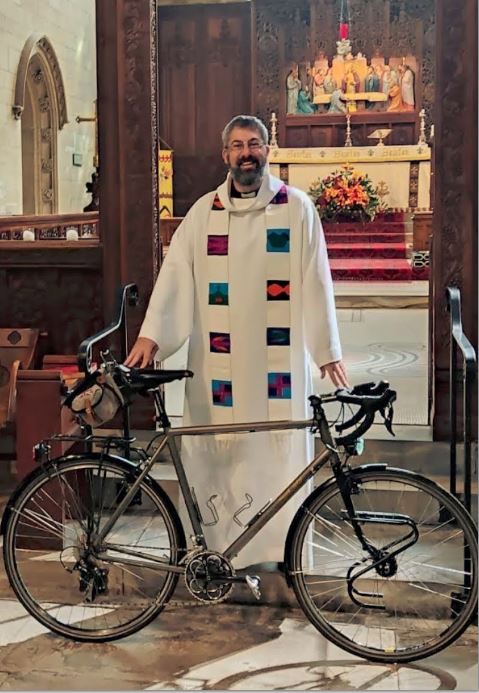There are many tales about the beginning of everything, but the beauty inherent in the stories of Jewish and Christian scripture, is that God didn’t need human help. Even dyed in the wool atheists will agree with us on this point: humans did not create the Universe and everything that is in it. Faith-filled folk are inspired by the Creator’s delight in making good things, of taking time to enjoy the process, and then lastly bringing forth life to experience this goodness. In our version, human life was the last thing to be added, life from other planets may have a different story to share. While some might call life an after-thought, I read of a loved one preparing a place in which I could dwell, and when that place was ready God stopped – ceased the work – and invited us into this divine rest. God’s Sabbath.
The combination of living in a good creation and Sabbath rest, are the first things we learn about the character of our Creator God: that after the void, the chaotic darkness, the emptiness of pre-creation, when God had introduced the concepts of order and disorder, and the material which could be ordered or disordered, God then made a space we could call home, and it was good. This speaks to me of a character that loves creation and all that is within it. God is indeed, love.
As a child of God, I aspire to walk lightly across my heavenly-parent’s good creation. Like bike-packers and wild-campers, I hope to ‘leave no trace’ of my passing. It is for this reason that I prefer to exercise my priestly ministry on a bicycle. My life has, so far, been blessed with the capacity and energy with which to ride a bike. I understand that not everyone can, and I make no assertion that they should. Planes, trains and automobiles are useful, and helpful for those who can’t move themselves. I use a car from time to time, especially when I feel unwell or simply exhausted. I tend to think of cars as expensive mobility scooters: a blessing on those who need them. It is true however, that the more we rely on objects of convenience, the less capable we become. I occasionally wonder at the reverse-boast of apparently young and healthy people insisting they couldn’t cycle up that hill I’ve just ridden up. Then I remember to make no judgement, as I don’t know their mental and physical situation: I acknowledge my bias to myself and accept what they’ve said.
I find that my humanity is expressed most fully in a spiritual affirmation of my physicality. God did not imprison this soul in animated flesh and neither am I merely a biodegradable carrier bag for my DNA. I am more than the sum of my parts. Holy Scripture tells me that God takes no delight in human strength, but the emphasis here is on those moments when we elevate ourselves to godhood in our own lives or mislead ourselves into believing that by our own strength we will save ourselves from death. It is possible to value our physical nature without worshipping it; we can remember that God created us and said that the creation was good, without admiring ourselves in the mirror of our own delight.
One aspect of being a Vicar in the Church of England is being a visible priestly presence. As I cycle around the parishes to which I’ve been called, I’m easier to see than if I was hidden behind a curved sheet of laminated safety glass, distracted by the chatter of Radio 4. On a bicycle I’m right there: “I saw you on your bicycle” comes the boast of the school child as I take their morning assembly. On a bicycle my presence is not just physical: it is emotionally, intentionally, and spiritually there too. My presence in the community is immersive, for as an articulated lorry thunders past, or a dirty diesel belches black fumes: I flinch with those who flinch, I cough with those who cough.
Cycling is not just a practical form of transport for this Vicar. It is also a way of relaxing, keeping fit, travelling and making space to process my thoughts. I ride my bicycle for the liberation it brings. Freedom comes in many forms, and one is the ability and opportunity to ride a bicycle. My soul soars and my mind meditates as my body is occupied with the familiarity of turning carbohydrates into forward motion. The creator God, who wrote the language of lactic acid, invites my legs to sing in words only God can hear.
On the eighth day, God and I went for a bicycle ride, and it was good.

